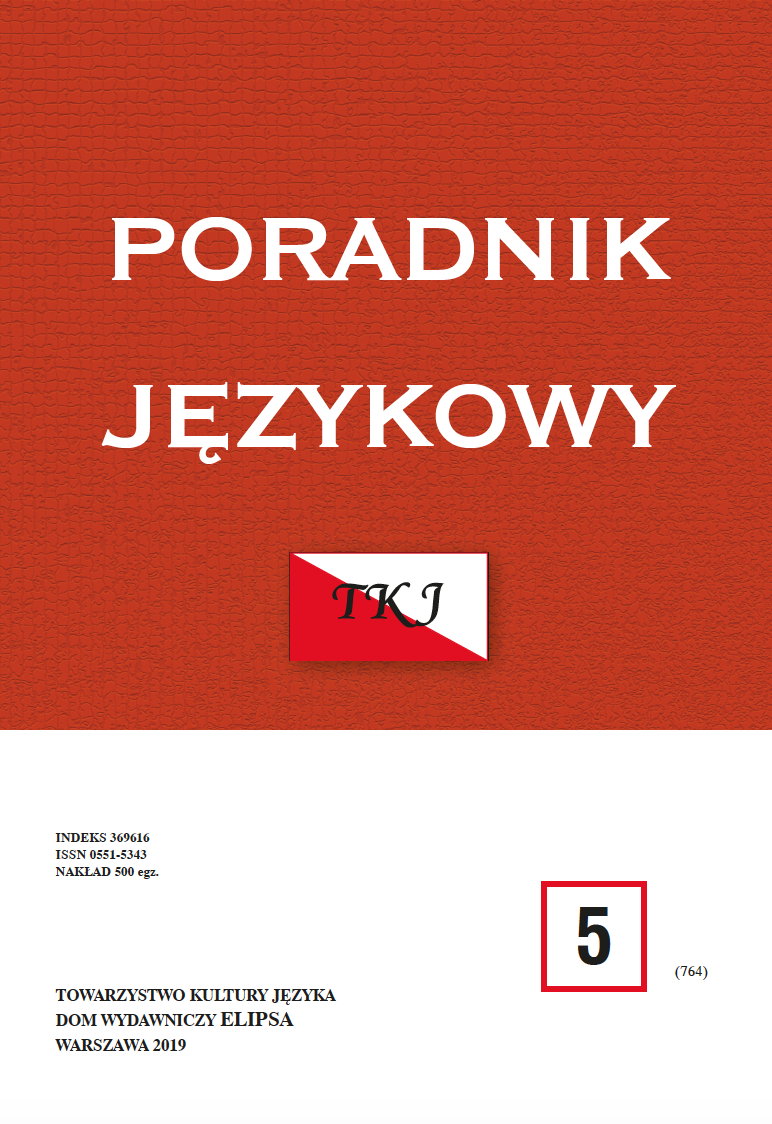INTERNACJONALNE KOLOKACJE JAKO SKŁADNIKI DYSKURSU KAPITALISTYCZNEGO I ICH RECEPCJA WE WSPÓŁCZESNEJ POLSZCZYŹNIE
International collocations as components of capitalist discourse and their reception in the contemporary Polish language
Author(s): Irena SzczepankowskaSubject(s): Theoretical Linguistics, Applied Linguistics
Published by: Dom Wydawniczy ELIPSA
Keywords: international collocations; contemporary Polish language
Summary/Abstract: This paper analyses international collocations, winged words and aphoristic phrases being components of capitalist discourse, which has been intensively adapted by Poles since 1989, such as: wolny rynek (free market), wolna konkurencja (free competition), własność prywatna (private property), kapitał spekulacyjny (risk capital), prowadzić biznes (to run a business), zaciągnąć kredyt (to take out a loan), niewidzialna ręka rynku (the invisible hand), gra interesów (an interplay of interests), raj podatkowy (a tax haven), pracować w szarej strefi e/ na czarno (to work in the grey economy / informal sector), wpaść w spiralę długów (to fall into a debt spiral); Pieniądz nie śpi (Money never sleeps), Kapitał nie ma narodowości (Capital has no nationality), Nie ma darmowych lunchów (There is no such thing as a free lunch), Dajemy wędkę, nie rybę (Give a man a fish and you feed him for a day; teach a man to fish and you feed him for a lifetime); Gospodarka, głupcze! (Economy, stupid!). A broad reception of this type of phrases in the colloquial Polish language and their frequent reproductions in journalistic texts and comments published in recent years on popular Polish web portals have been noticed. It has been proved that experts featured in the media (economists, politicians, lawyers, and journalists) shape the collective mentality by means of collocations, which are to a large extent calques of the corresponding expressions and phrases used in English-language texts, reproduced in the discourse. They serve the purpose of imposing a common ideologically conceptualised view of reality on discourse participants. Hence, the quoted collocations are treated in this paper as carriers of the capitalist worldview and a substantial component of communicative competence of public discourse participants, which fulfi ls several significant functions characterised in this paper as: nominative (referential), persuasive and evaluative functions.
Journal: Poradnik Językowy
- Issue Year: 2019
- Issue No: 05
- Page Range: 7-19
- Page Count: 13
- Language: Polish
- Content File-PDF

